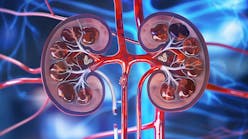For many years, scientists have sought to understand what happens when our genes are flipped to the “on” position. Now, scientists at the University of California San Diego and Rutgers University have identified a new protein that contributes to this important process, according to a news release.
Inside each of our cells, genes serve as the master copies of information in the six-foot-long molecular chain of instructions known as DNA. In the activation of our genes, an enzyme known as RNA polymerase synthesizes an RNA copy of the DNA in our genes. RNA polymerases in animals were discovered over 50 years ago, and most of the proteins that regulate RNA polymerase activity were identified more than 20 years ago. This led to the belief that all of the key factors that affect gene activation were already known.
This idea has now been revised in recent work by former UC San Diego postdoctoral researcher Jia Fei (now an Assistant Professor at Rutgers University) and James T. Kadonaga at UC San Diego. In 2018, Fei and Kadonaga discovered a protein called NDF (nucleosome destabilizing factor), which they found played a significant role in gene activation by unraveling nucleosomes, which are modules of DNA inside cells.
In their new studies, Fei, Kadonaga and colleagues made the surprising discovery that NDF not only unravels nucleosomes, but also turbocharges RNA polymerase as it travels along the DNA. Looking further into this unexpected observation, Fei and Kadonaga found that NDF binds directly to RNA polymerase and stimulates the enzyme’s ability to synthesize RNA. Furthermore, they found that NDF exists in a vast range of organisms spanning from simple baker’s yeast to humans. This work thus reveals that NDF is an ancient and widespread protein that enhances RNA polymerase elongation, a pivotal step in gene expression.
The new findings are described in the journal Genes & Development.
“In humans, NDF is present in all tissues, which suggests that it has a broad and important role in our biology,” said Kadonaga, a distinguished professor of molecular biology and the Amylin Endowed Chair in Lifesciences Education and Research. “Consistent with this notion, abnormally high NDF levels, which might lead to the hyperactivation of genes, are often found in breast cancer cells.” Kadonaga also noted that it’s remarkable that a single protein is able to destabilize nucleosomes as well as stimulate RNA polymerase elongation. These findings indicate that it will be important to learn much more about this new gene activating protein.





